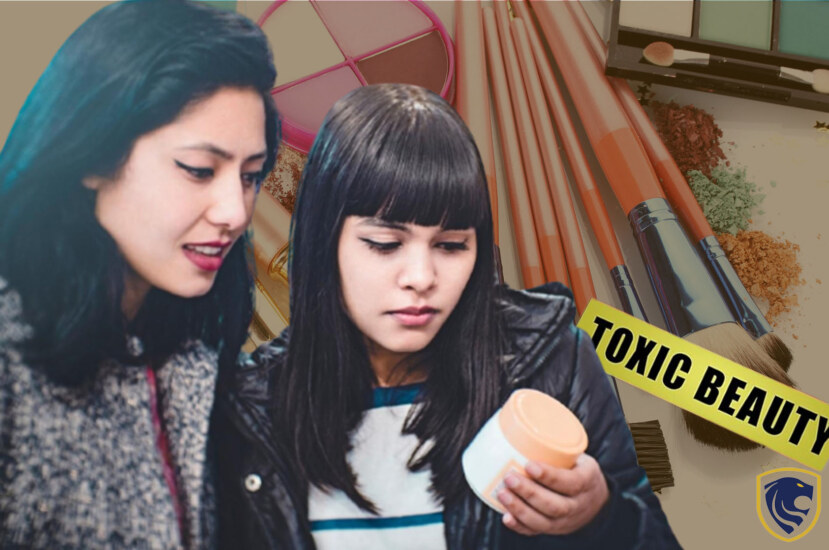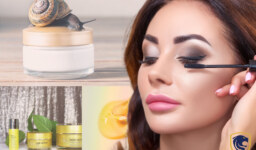In our pursuit of beauty, we frequently place our confidence in goods that claim to improve our look and well-being. However, many beauty and skincare products have hidden risks – chemical chemicals that have the potential to harm our skin, our health, and even the environment. While these elements are not often obvious, their presence in our daily lives can have a variety of negative consequences. From skin irritations and allergies to more serious health issues, it’s critical to shine a light on these hidden dangers. We will identify and investigate these hidden concerns in beauty products in this post, putting light on the possible problems linked with popular components.
By knowing what to look out for, you can make more educated beauty choices, prioritize your well-being, and move towards a safer and healthier approach to skincare and cosmetics. Your beauty regimen should boost your confidence rather than jeopardize your health, and this article tries to arm you with the knowledge you need to make safer, more educated decisions.
Parabens
In many cosmetic products, parabens are employed as preservatives. Methylparaben, propylparaben, and butylparaben are their names. The capacity of parabens to imitate estrogen in the body is problematic. They have the potential to disturb your hormone balance, which is undesirable. These compounds have the potential to cause a variety of health problems. Because parabens may accumulate in breast tissue, several studies have connected them to breast cancer. While this relationship is still being investigated, it is concerning.
Additionally, parabens can irritate skin, especially in persons with sensitive skin. Using products containing these preservatives may cause redness, irritation, or rashes.

Parabens
Another concern is the cumulative impact of parabens. They’re in a lot of the goods we use every day, from moisturizers to shampoos and even cosmetics. This might result in extensive exposure to these potentially hazardous substances over time. However, fortunately, several brands are now providing paraben-free options. These items employ a variety of preservatives or are designed to be self-preserving, eliminating the need for synthetic preservatives.
Checking product labels for “paraben-free” status is an easy way to decrease your exposure. Moreover, knowing the components in your beauty products allows you to make healthier choices for your health and well-being.
Phthalates
Phthalates are compounds that are commonly found in the scents of cosmetics. They are employed to make odors last longer. The problem is that phthalates can interfere with your hormones. These hormone-disrupting qualities might be harmful to your health. Phthalates are known to interfere with the endocrine system, which might lead to issues with development and reproduction. Pregnant women and little children are especially vulnerable. Phthalate exposure during pregnancy may be harmful to fetal development, and exposure throughout infancy may have an impact on growth and development.
Product labels do not usually list phthalates. Instead, they can be disguised as “fragrance.” Because of this lack of openness, it is difficult for customers to identify and avoid phthalate-containing items.

Phthalates
Because of the possible health hazards linked with phthalates, there has been a rise in awareness and demand for phthalate-free beauty products. As a result, several manufacturers are reformulating their goods to eliminate these dangerous substances.
When shopping for cosmetic goods, especially those containing perfumes, look for ones labeled “phthalate-free.” Furthermore, choosing goods with transparent ingredient lists will assist you in avoiding potential exposure to these hidden risks in cosmetic products. Being knowledgeable and making conscientious decisions can help to make your beauty regimen safer and healthier.
Sulfates
Sulfates are frequent detergents in beauty and personal care products, such as Sodium Lauryl Sulphate (SLS) and Sodium Laureth Sulphate (SLES). They give your shampoos, body washes, and face cleansers that luscious lather. But here’s the catch: They can be damaging to your skin and hair. Sulfates can deplete your skin of its natural oils, causing dryness and irritation. Sulfate-containing products may not be your best friend if you have sensitive or dry skin. Sulfates can be especially damaging to persons with curly or color-treated hair. They might cause hair color to fade and make your hair seem fragile.

Sulfates
Furthermore, some persons are sensitive or allergic to sulfates, causing redness, itching, or rashes when exposed. As a result, sulfate-free alternatives have grown in flavor. Sulfates are also a source of worry owing to their ability to create nitrosamines, which have been related to cancer. While the danger is modest, it is nevertheless cause for concern.
Many cosmetic brands now provide sulfate-free solutions, particularly for shampoos and face cleansers. Using sulfate-free products can help preserve the natural balance of your skin and hair while lowering the risk of irritation and potential health issues. Reading ingredient labels can help you have a more educated and safer beauty regimen.
Fragrance
Fragrance is a common element in cosmetics ranging from fragrances to lotions and shampoos. It’s what gives these items their alluring aroma. The catch is that perfumes may be a concealed hazard. The phrase “fragrance” on an ingredient list might hide a slew of unknown compounds. Manufacturers are not allowed to label the individual components of scents, making it difficult for customers to know exactly what they’re putting on their skin.
Many synthetic scents contain potentially dangerous compounds such as phthalates, which can affect hormone function. These substances may be hazardous to your health, especially if you are exposed to them for an extended period. In addition, scents are a major cause of allergies and skin sensitivities. The fragrance is most likely to be blamed for redness, itching, or hives after using a scented product.

Fragrance
Those with sensitive skin or fragrance allergies should look for goods labeled “fragrance-free” or “unscented.” These goods are designed to be fragrance-free. Natural fragrances generated from essential oils may be a safer option for consumers looking for scented items. However, even natural perfumes might induce allergic responses in certain people.
Being aware of the potential hidden risks of fragrances is critical for making educated beauty decisions. Reading product labels and choosing fragrance-free or unscented alternatives might help lessen the dangers connected with unknown substances in cosmetic products. When choosing personal care goods, your health and comfort should always come first.
Formaldehyde and Formaldehyde Releasers
Formaldehyde and formaldehyde releasers are substances that can be concealed in cosmetic products, offering hidden health risks. These compounds are frequently used as preservatives to inhibit bacterial development and to increase the shelf life of a product. When used in cosmetics, formaldehyde can irritate the skin and eyes. The International Agency for Research on Cancer (IARC) also classifies it as a known human carcinogen.
Formaldehyde releasers, on the other hand, steadily release formaldehyde over time to function as preservatives. Common formaldehyde releasers include DMDM hydantoin, imidazolidine urea, and quaternion-15. Exposure to formaldehyde and formaldehyde releasers can cause allergic responses, skin sensitivities, and respiratory issues. Asthmatics may be especially sensitive to certain substances.

Formaldehyde and Formaldehyde Releasers
Many governments and regulatory bodies have recognized the potential dangers of formaldehyde and its releasers, resulting in prohibitions on their usage in cosmetics. It is critical, however, to be attentive and examine product labels for these components.
Beauty products labeled “formaldehyde-free” or “without formaldehyde releasers” might help decrease your exposure to these hidden risks. Another strategy to safeguard your health is to choose items that employ alternative, safer preservatives.
Mineral Oil
Mineral oil is used in a variety of beauty products, including moisturizers, lotions, and even hair products. It’s utilized to provide a protective barrier on the skin, keeping moisture in. Mineral oil, despite its popularity, is not without hidden hazards.
Mineral oil can block pores, which is one of its drawbacks. It generates a barrier on the skin’s surface that can trap perspiration, germs, and other pollutants beneath the skin, perhaps causing acne or skin irritation.

Mineral Oil
Mineral oil is also not recommended for persons with oily or acne-prone skin, since it might aggravate these symptoms. There is also the issue of purity. Mineral oil used in cosmetics is refined and filtered, making it safe to use. However, contaminants in lower-quality items pose a danger of contamination. Furthermore, mineral oil has no nourishing properties for the skin. It just retains current fluids while providing no additional hydration or nutrients. While some people may find mineral oil to be a useful and safe cosmetic component, others may prefer plant-based oils (e.g., coconut oil, jojoba oil) that provide additional skincare advantages.
Knowing the disadvantages of mineral oil will help you make more educated selections when purchasing cosmetic products. If you have sensitive skin or want more natural skincare solutions, you should look for products that don’t include mineral oil or investigate alternatives that are more in line with your skincare goals.
Propylene Glycol
Propylene Glycol is a component commonly found in beauty products such as moisturizers, shampoos, and cosmetics. It aids in the retention of moisture and the texture of items. However, it is critical to be aware of any potential hidden risks linked with this drug. Propylene glycol has the potential to cause skin irritation and allergies. After using goods containing this chemical, some people may develop redness, irritation, or rashes. Prolonged exposure to high amounts of propylene glycol can cause contact dermatitis, a painful skin disease, in more severe situations.
Another possible hazard is that propylene glycol might help other substances penetrate the skin. Propylene glycol may enhance the absorption of other toxic components in a product, thus worsening skin issues.

Propylene Glycol
While propylene glycol is usually regarded as safe in low quantities, some people with sensitive skin or particular skin problems may be more vulnerable to its negative effects.
If you are concerned about propylene glycol or have had skin problems while using products containing it, you should look into propylene glycol-free alternatives. Many beauty businesses now provide such alternatives to consumers with sensitive skin or those looking for more natural skincare solutions.
Being aware of the components in your beauty products and how they may interact with your skin can allow you to make better-educated decisions for a healthier and more comfortable beauty regimen.




